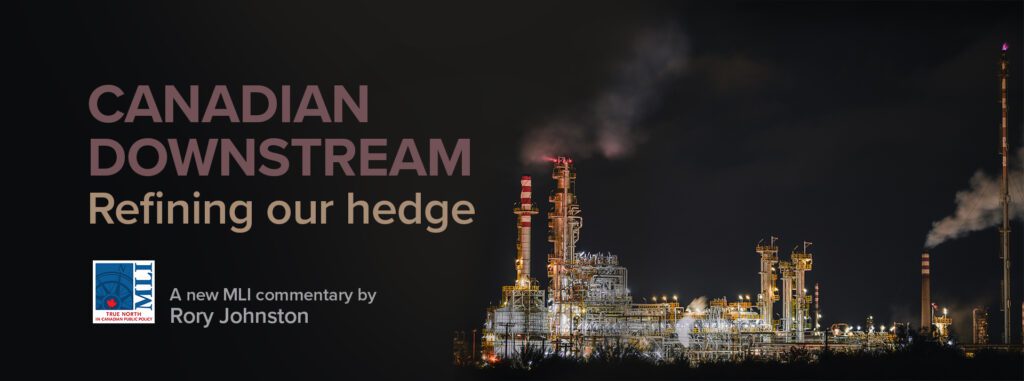This article originally appeared in the Hill Times.
By Ken Coates and Carin Holroyd, October 21, 2024
In the 1970s, Canada had an impressive network of highway lodges, gas stations, and motels positioned strategically along the long and winding roads that connected southern and urban areas to rural and small-town Canada. Today, most of these way-stations are gone, and the gaps between the surviving highway stops area are growing. These small settlements are, in many ways, victims of innovation.
The innovations in these instances are less exciting than AI, biotechnology, machine learning, or space travel, and include the development of radial tires and improved automobile gas mileage, combined with the expansion of paved highways and improved road surfaces. These innovations—all rooted in scientific discovery and commercial development—have allowed people to drive further, faster, and more cheaply, with rare tire blowouts, and in greater comfort.
Innovation disrupts. The advent of the automobile destroyed much of the market for horses, carriages, and buggy whips while creating new economic sectors. Electrification has ended some businesses, and sparked different industries. The rapid improvement in airplane technologies opened vast expanses of Canada—particularly in the North—improving access to remote communities, and expanding economic activity.
And so it continues to the present. The internet and better cellphone service have enhanced many aspects of Canadian life—entertainment, banking, health care, shopping, and even education—but much less effectively in rural, northern, and small-town areas. New technologies come faster—AI looms, monster-like, on the horizon—all the time, with substantial disruptions and—to be clear—significant improvements.
Canada has made a modest and only partially successful transition to an innovation economy. There are several bright spots, including AI, the Waterloo Region eco-system, and some elements of government-funded scientific research. But the nation’s overall performance lags well behind competitor nations. Toronto, Vancouver, Calgary, and Montreal play in the big global leagues, attracting much of the country’s government innovation funding, and with ready access to private investment capital.
Beyond the achievements of this country’s major city-state economies, however, achievement is uneven. There are important research and practical commercial applications in prairie agriculture. Our oil and gas sector is one of the most innovative in the world. Science-based management of the lobster fishery in the Maritimes is an important example of research-founded natural resource management, and commercial adaptation. The mining industry’s extractive and processing activities—undertaken in Canada and internationally—are among the best in the world. And far from being a declining remnant of the “old economy,” the resource sector is scientifically advanced, commercially engaged, and globally important.
A fundamental dissonance has emerged in our innovation economy. The research and commercialization activities are focused larger cities, with only small reverberations in rural areas. The country’s top universities—almost all located in major urban areas—attract faculty, research funding, students and start-up firms. The associated financial, legal, marketing and other professional work is overwhelmingly city-based. Innovation generates opportunity, jobs, and prosperity, producing in the best cases recurring invention, investment, and renewal. It is this cycle that has sustained the long-term prosperity and creativity of Ontario’s Waterloo Region, and that has made the Greater Toronto Area one of the world’s top innovation eco-systems.
In contrast, rural areas and small towns have been largely passive recipients of the commercialization of science and technology, and only rarely significant beneficiaries in terms of general economic growth. Innovations have reduced dramatically the number of jobs in forestry, mining, and agriculture, all the while maintaining or expanding Canadian production of vital resources. The country may be wealthier, but many areas are coping with declining populations and stagnant local economies.
Canada has not yet learned how to diversify its innovation economy in the way Norway, Sweden, and Finland are doing. Manufacturing and much of this country’s processing is shifting to urban and near-urban areas. Northern and rural areas are losing stores to e-commerce, movie theatres to video-streaming, and professional jobs to e-health and e-education, experiencing only a small return in the way of reduced costs of living and limited work opportunities. Scientific and technological innovation is bringing only incremental benefits to small towns and rural areas and major transformations to the nation’s cities. The rural-urban divide in Canada is only going to accelerate with social and political consequences that will bedevil the country in the decades ahead.
Ken Coates is a professor emeritus at the University of Saskatchewan, and a distinguished senior fellow at the Macdonald-Laurier Institute.
Carin Holroyd is a professor of political studies at the University of Saskatchewan.







